- What is Ideathon Judging Criteria?
- Ideathon Judging Criteria: How To Evaluate The Ideas?
- Appointing Ideathon Judges: Key Considerations
- Best Practices For Mentors and Judges at Ideathons
- Intellectual Property Rights & Multiple Prize Considerations in an Ideathon
- Frequently Asked Questions (FAQs)
Ideathon Judging Criteria: Best Practices For Mentors And Judges
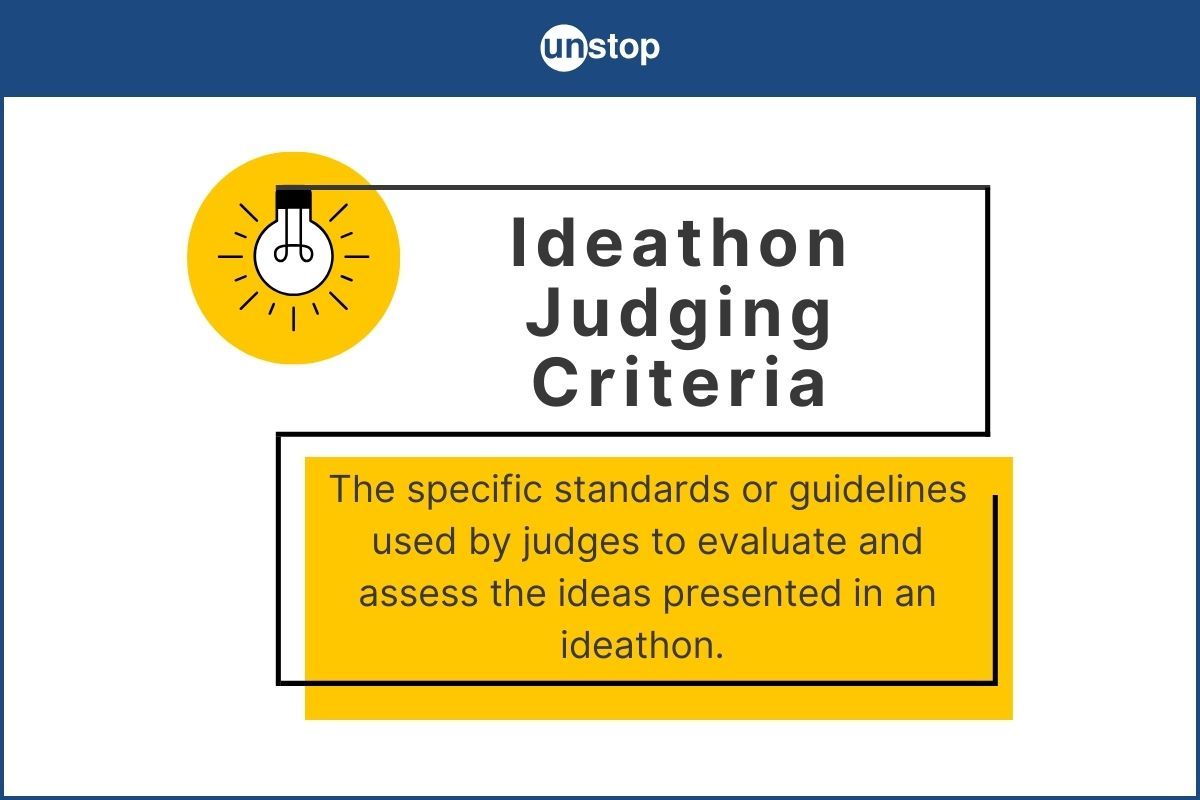
Clear and transparent judging criteria are crucial for the success of any ideathon. The ideathon judging criteria play a significant role in promoting fairness and objectivity throughout the evaluation process.
What is Ideathon Judging Criteria?
Ideathon judging criteria refers to the specific standards or guidelines that mentors and judges use to evaluate and assess the ideas presented in an ideathon. These criteria help determine the winners and provide a framework for judging the feasibility, innovation, impact, and other aspects of the ideas.
By understanding the importance of well-defined ideathon judging criteria, organizers can ensure that participants have a clear understanding of what is expected from their submissions. Whether you are organizing an ideathon or participating as a contestant, having a solid grasp of effective judging criteria is essential for a successful event.
Ideathon Judging Criteria: How To Evaluate The Ideas?
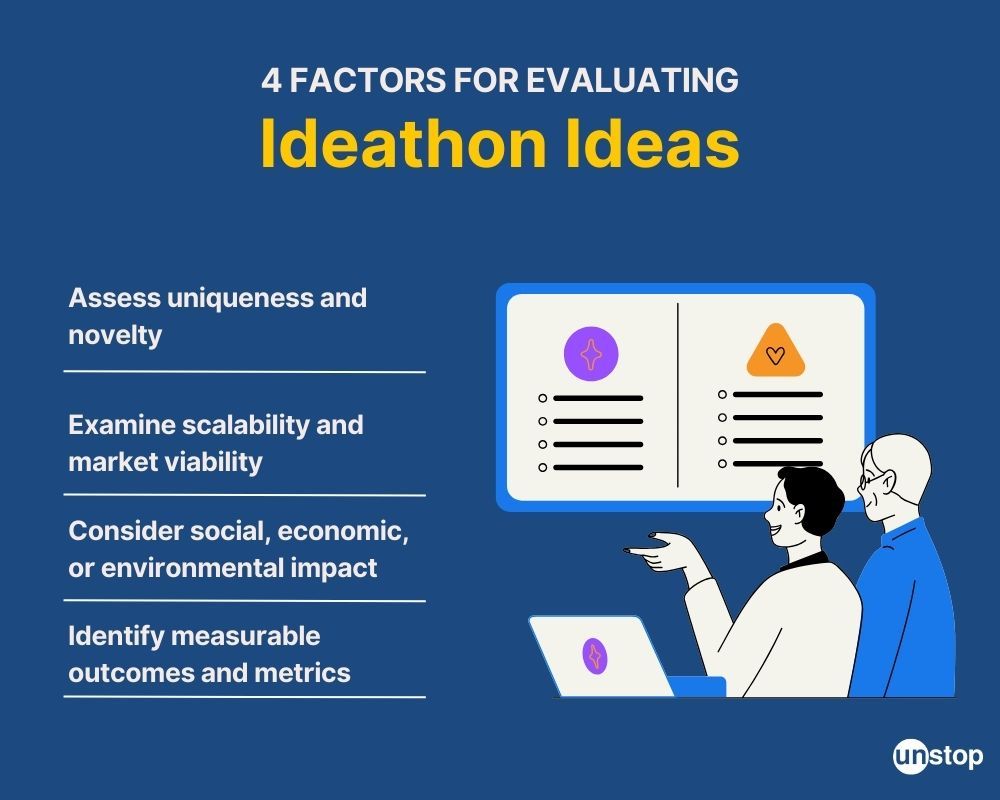
There are several key criteria that mentors and judges consider. These ideathon judging criteria help assess the innovation, impact, and potential of the proposed solutions. Let's take a closer look at how ideas should be evaluated during an ideathon:
Assessing uniqueness and novelty
One important aspect that judges should look for is the uniqueness and novelty of the ideas presented. Ideas that offer fresh perspectives and innovative approaches to solving challenges should be encouraged. Judges should consider whether the ideas stand out from existing solutions or if they bring a new twist to address a problem.
Examining scalability and market viability
Another crucial ideathon judging criteria is the potential scalability and market viability of ideas. Judges should assess whether the proposed solutions have the potential for growth and expansion beyond the initial stage. They should also consider if there is a target market or audience for these ideas, ensuring that they can be implemented successfully.
Considering the social, economic, or environmental impact
Judges should look out for ideas that have a positive impact on society, economy, or the environment. They should evaluate how well these solutions address pressing issues or contribute to making a difference in people's lives. The judges should consider whether the proposed projects align with sustainable development goals or have a positive influence on communities.
Identifying measurable outcomes and metrics
To evaluate the impact of ideathon ideas effectively, judges should look for measurable outcomes and metrics. They should seek clarity on how success will be measured once these solutions are implemented. This could include specific targets such as reducing waste by a certain percentage or improving access to education for underprivileged communities.
By considering these factors, organizers ensure that the ideathon judging criteria help mentors and judges provide a thorough evaluation of ideas based on their innovation, scalability, viability, impact, and measurability of outcomes. This helps identify promising projects that have great potential for success while addressing real-world challenges.
Appointing Ideathon Judges: Key Considerations
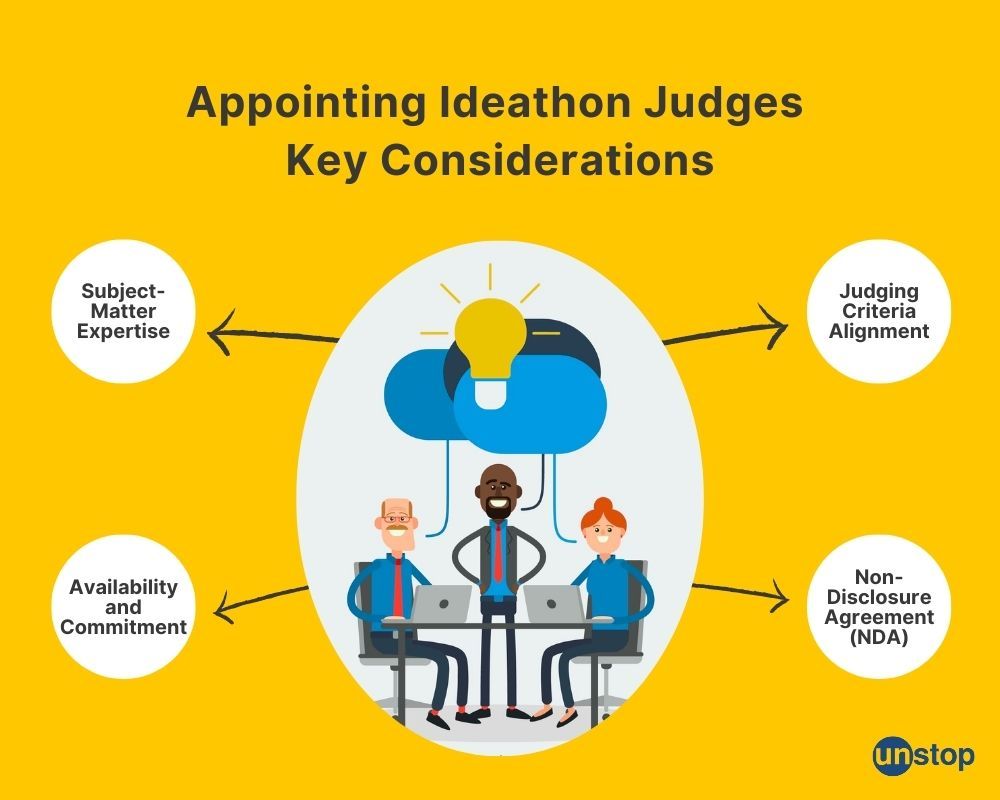
Once the ideathon judging criteria have been established, firms also need to focus on appointing the right panel of judges. Here are the key considerations to keep in mind when selecting ideathon judges:
-
Subject-Matter Expertise: One of the most important considerations when appointing judges for ideathons is their subject-matter expertise. Judges should have a deep understanding of the industry or field in which the ideathon is focused. This expertise allows them to assess the feasibility and potential impact of the ideas presented accurately.
-
Judging Criteria Alignment: The judges appointed for an ideathon should be aligned with the judging criteria established by the organization. Clear guidelines and criteria should be provided to the judges to ensure consistency in evaluating the ideas. This alignment helps in maintaining transparency and fairness throughout the judging process.
-
Availability and Commitment: Judges should be available and committed to dedicating their time and effort to the ideathon. It is essential to appoint judges who can commit to attending all the relevant sessions and provide timely feedback. Their availability ensures a smooth and efficient evaluation process.
-
Non-Disclosure Agreement (NDA): Organizations should consider having judges sign a non-disclosure agreement. This helps protect the confidentiality of the ideas presented during the ideathonThis agreement ensures that judges do not disclose or use the ideas for personal gain, maintaining the integrity of the competition.
The criteria for appointing judges can vary depending on the purpose of the ideathon. For example, if the ideathon aims to promote innovation in a specific industry, the judges should have extensive experience and knowledge in that industry. On the other hand, if the ideathon is focused on social impact or sustainability, judges with expertise in those areas would be more suitable.
Best Practices For Mentors and Judges at Ideathons
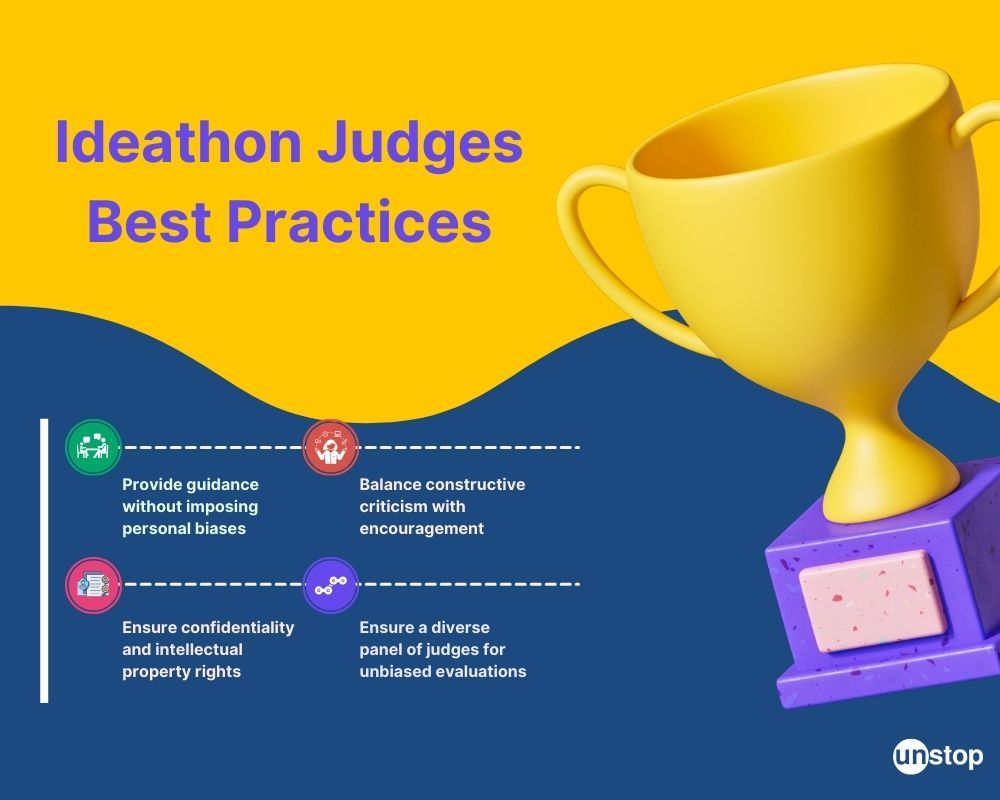
Providing guidance without imposing personal biases
Mentors and judges play a crucial role in the success of ideathons. When offering guidance to participants, it is essential to strike a balance between providing valuable insights and allowing them the freedom to explore their own ideas. Avoid imposing personal biases that may hinder the creative process. Instead, focus on asking thought-provoking questions that encourage critical thinking and problem-solving skills.
Balancing constructive criticism with encouragement
Giving feedback is an integral part of mentoring and judging at ideathons. However, it's important to maintain a positive and supportive environment. While pointing out areas for improvement, mentors and judges should also highlight the strengths of each idea or solution. This helps motivate participants to continue refining their concepts while boosting their confidence.
Maintaining confidentiality and respecting intellectual property rights
Ideathons often involve sharing innovative ideas that are still in development. As a mentor or judge, it is crucial to respect the confidentiality of participants' ideas and protect their intellectual property rights. Avoid discussing or sharing any sensitive information outside of the ideathon event without explicit permission from the creators.
Ensuring a diverse panel of judges for unbiased evaluations
To ensure fair evaluations, organizers should strive to assemble a diverse panel of judges with varied backgrounds, expertise, and perspectives. A diverse group can provide well-rounded assessments that consider different angles and potential impacts of each idea presented at the ideathon. This helps prevent bias based on personal preferences or limited viewpoints.
Diversity plays a key role in ensuring fair evaluations at ideathon, as well as boosting an organization’s performance and work culture. Find out more about why diversity hiring matters in this comprehensive guide.
By following these best practices, mentors and judges can create an inclusive environment that fosters creativity, innovation, and collaboration among students, professionals, and aspiring entrepreneurs alike.
Intellectual Property Rights & Multiple Prize Considerations in an Ideathon
While it’s important to clearly establish the ideathon judging criteria, organizers should also look into clearly defining the rules surrounding Intellectual Property and Multiple Prizes. Here’s a look at what this entails:
Intellectual Property Rights
One crucial aspect of any ideathon is ensuring that participants are well-informed about protecting their intellectual property (IP) rights. It's essential to educate them on the importance of safeguarding their ideas, innovations, and creations from unauthorized use or infringement. By providing clear guidelines and resources on IP protection, participants can make informed decisions and take necessary steps to secure their work.
Here are three things to keep in mind when considering IP rights during an ideathon:
Addressing Concerns Regarding Ownership and Licensing Agreements
During an ideathon, collaboration is key, but it's also important to address concerns related to ownership and licensing agreements. Participants should be aware of how ownership rights are determined when multiple individuals contribute to a project. Open discussions about licensing agreements can help clarify expectations and ensure that all parties involved understand their rights and responsibilities.
Encouraging Open-Source Collaboration While Safeguarding Individual Rights
While fostering open-source collaboration is often encouraged during an ideathon, it's equally important to protect individual rights. Participants should be made aware of the benefits of open-source projects while understanding the potential risks associated with sharing their work freely. By striking a balance between collaboration and individual rights, participants can benefit from collective expertise while safeguarding their own interests.
Establishing Clear Guidelines on IP Protection During the Ideathon Process
To avoid confusion or disputes regarding IP rights, it is crucial for organizers to establish clear guidelines on IP protection throughout the ideathon process. These guidelines should outline how participants' ideas will be treated, stored, and shared within the platform or offline world. Organizers must provide information on how they will handle participants' personal data in accordance with privacy notices and consent requirements.
Multiple Prize Eligibility: important notes to consider
Let’s take a look at the key points to consider when participants are eligible for multiple prizes or awards.
Clarifying Eligibility Requirements for Multiple Prizes
When organizing an ideathon, it is essential to clearly communicate the eligibility requirements for multiple prizes. This helps avoid confusion and ensures that all participants understand their chances of winning different awards. By providing detailed information about the criteria and qualifications for each prize category, organizers can set clear expectations from the beginning.
Avoiding Conflicts of Interest
To maintain fairness in the competition, it is important to address any potential conflicts of interest that may arise when participants are eligible for multiple prizes. Organizers should establish a fair judging process that considers each submission's merit independently, regardless of whether a participant is eligible for one or more awards. This helps prevent biases and ensures that winners are selected solely based on their ideas' quality and impact.
Ensuring Transparency in Prize Allocation Decisions
Transparency is key when allocating prizes in an ideathon competition. Organizers should openly communicate how they will allocate prizes among winners and finalists. By sharing this information with all participants, organizers foster trust and confidence in the judging process. It is also recommended to provide a breakdown of how judges evaluate submissions and determine prize distribution.
Mentors and judges play a crucial role in guiding participants to success, and understanding the judging criteria is vital in providing valuable feedback. Their guidance and expertise can help shape innovative ideas into impactful projects that address real-world challenges. By fostering an environment of collaboration, feedback, and support, mentors and judges can inspire participants to push their boundaries further.
Looking to organize an ideathon? Explore Unstop’s ideathon platform and find ways to generate impactful ideas that provide novel solutions and drive change.
Frequently Asked Questions (FAQs)
1. What are the key considerations when appointing a judge for an ideathon?
When appointing a judge for an ideathon, an organization should consider several factors. Firstly, the judge should have a strong background and expertise in the field relevant to the ideation's theme. This ensures valuable insights and feedback are provided to the participants. Additionally, the judge should be impartial and unbiased, able to evaluate ideas objectively without any personal or professional biases. It is also important that judges exhibit excellent interpersonal and communication skills, so as to effectively communicate their feedback to the participants. Lastly, the judge should be reliable and committed to the role, being available throughout the duration of the ideathon to fulfill their responsibilities.
2. What factors should I consider while evaluating innovation during an ideathon?
When evaluating innovation during an ideathon, consider factors such as the originality of the idea, its potential impact on solving the problem statement provided by the event organizers, the feasibility of implementation within given constraints, scalability potential if applicable, and creativity demonstrated in presenting the idea.
3. How do intellectual property rights work in an ideathon?
Intellectual property rights in an ideathon typically remain with the participants. However, it is essential to clarify the terms and conditions regarding intellectual property ownership before participating. Some ideathons may require participants to grant certain rights to the organizers or sponsors, so it's crucial to review any agreements or contracts provided.
4. Can a participant be eligible for multiple prizes in an ideathon?
Yes, a participant can be eligible for multiple prizes in an ideathon if they meet the criteria set by each prize category. It's important to carefully review the rules and guidelines of the event to understand whether simultaneous eligibility for multiple prizes is allowed and any specific requirements associated with it.
5. How can mentors and judges provide effective feedback during an ideathon?
Mentors and judges can provide effective feedback during an ideathon by offering constructive criticism, highlighting strengths and areas of improvement, providing actionable suggestions, and encouraging participants' growth. Clear communication and specific examples can help participants understand how they can enhance their ideas further.
Suggested Reads:
- What Is An Ideathon & How Does It Benefit Organizations?
- Hackathon For Engagement: An Innovative Approach To Connect With Students & Employees
- AI in Hiring: The Ultimate Guide for HR Professionals
- Role Of Soft Skills In Modern Hiring Can't Be Ignored. Here's Why
- Future of Remote Work Is Hybrid: A Look At The Latest Trends
I’m a reader first and a writer second, constantly diving into the world of content. If I’m not writing or reading, I like watching movies and dreaming of a life by the beach.
Login to continue reading
And access exclusive content, personalized recommendations, and career-boosting opportunities.
Subscribe
to our newsletter
Blogs you need to hog!
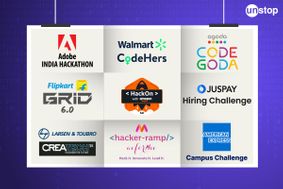
Organize Hackathons: The Ultimate Playbook With Past Case Studies

What is Campus Recruitment? How To Tap The Untapped Talent?
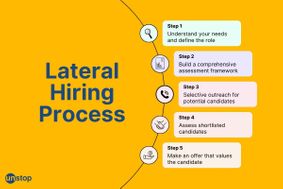
Lateral Hiring: A Complete Guide To The Process, Its Benefits, Challenges & Best Practices
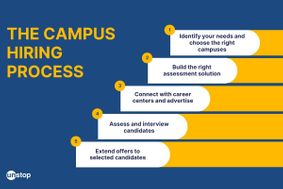










Comments
Add comment